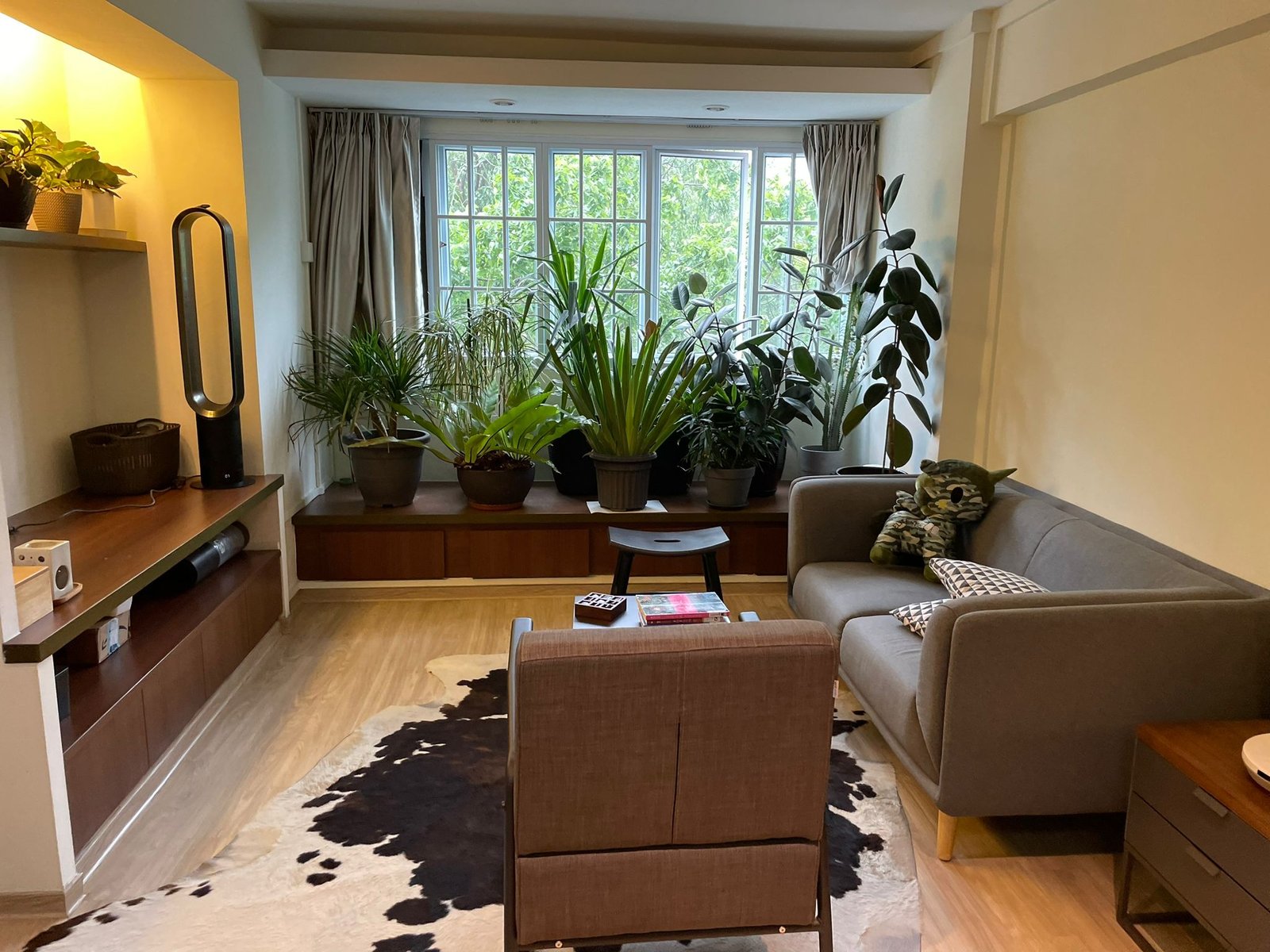Singapore’s real estate market has long been a favorite investment destination for local and foreign investors. While private residential properties are a popular choice for many investors, Singapore’s commercial real estate market also presents a lucrative opportunity for those seeking to diversify their investment portfolio. In this article, we will delve into the trends, opportunities, and risks of investing in Singapore’s commercial real estate market.
Section 1: Overview of Singapore's Commercial Real Estate Market
Brief history and development of commercial real estate in Singapore:
Singapore’s commercial real estate market has a rich history and has undergone significant development over the years. In the early days, commercial properties mainly consisted of shophouses and warehouses. Today, the market has expanded to include a wide range of commercial properties, such as office buildings, shopping malls, industrial parks, and hospitality assets.
Current state of the market:
The commercial real estate market in Singapore is highly dynamic and driven by a mix of local and global factors. As of 2023, the market has seen an uptick in demand for office and industrial spaces due to the growth of the technology and e-commerce sectors. Conversely, the retail and hospitality sectors have been hit hard by the COVID-19 pandemic, resulting in higher vacancy rates and lower rental yields in 2021 but have rebounded strongly.
Comparison between different types of commercial properties:
Each type of commercial property has its unique characteristics and investment considerations. For instance, office properties tend to be located in prime CBD locations and offer stable rental income, while retail properties may be subject to higher tenant turnover and shorter lease terms. Industrial properties, on the other hand, may have higher yields but only tenants with specific industries may rent them. For example, food factory or central kitchen only attracts a F&B related tenants who plans to do take away food as their main business.
By understanding the history and development of Singapore’s commercial real estate market, as well as the current state and trends, investors can make informed decisions on which types of properties to invest in and what strategies to employ. It is also important to keep a close eye on regulatory changes, global economic trends, and geopolitical developments, which can have a significant impact on the market.
Section 2: Key Factors Driving Singapore's Commercial Real Estate Market
Strong economic fundamentals:
Singapore’s strong economic fundamentals, including its strategic location, political stability, and business-friendly environment, have long attracted investors to the commercial real estate market. The country has a highly skilled workforce, a transparent legal system, and a well-developed infrastructure, making it an ideal hub for businesses in various industries.
Growing demand for technology and e-commerce:
The growth of the technology and e-commerce sectors has been a major driver of demand for commercial real estate in Singapore. Many companies in these industries require large office spaces, data centers, and logistics facilities to support their operations. As a result, the demand for these types of properties has been on the rise in recent years, leading to higher rental rates and property values.
Government policies and initiatives:
The Singapore government has implemented various policies and initiatives to promote the growth and sustainability of the commercial real estate market. EDB Singapore is the leading government body to plan and executive strategies to enhance Singapore’s economic competitiveness and has vast experience in assisting many foreign business to set up and expand their operations into Singapore. The government has also invested heavily in infrastructure development, including the expansion of the public transport system and the construction of new business parks. Additionally, the government has introduced various tax incentives and grants to encourage businesses to invest in the country. These policies and initiatives are aimed at creating a conducive environment for businesses to operate in, which in turn would make the commercial real estate market more attractive to investors. This would help to boost the demand for real estate and ultimately lead to increased prices and rental yields.
Regional and global economic trends:
The commercial real estate market in Singapore is not immune to regional and global economic trends. For example, the ongoing trade tensions between the United States and China, as well as the COVID-19 pandemic, Russia vs Ukraine war have had a significant impact on the market. As a result, investors need to stay abreast of these trends and their potential impact on the market when making investment decisions.
By understanding these key factors driving the commercial real estate market in Singapore, investors can better anticipate market trends and make informed investment decisions. It is important to conduct thorough due diligence, assess the risks and opportunities associated with different types of properties, and stay up-to-date with regulatory changes and economic developments.
Section 3: Investment Considerations for Commercial Real Estate in Singapore

Property location:
Property location is a crucial consideration for any commercial real estate investment in Singapore. Investors should look for properties that are situated in strategic locations, such as near transportation hubs or in areas with high foot traffic. This will increase the visibility and accessibility of the property, which can attract tenants and drive up rental income.
Tenant profile and occupancy rates:
Understanding the tenant profile and occupancy rates of a property is critical to assessing its potential for investment. Properties with high occupancy rates and long-term leases with reputable tenants are generally considered more stable and reliable investments. Additionally, it is important to consider the sector and size of the tenant’s business, as this can impact the long-term viability of the property.
Financing options and costs:
Investors should consider the financing options and costs associated with commercial real estate investments in Singapore. This includes evaluating different loan options, negotiating favorable terms with lenders, and assessing the impact of interest rates on the investment’s return. Additionally, investors should consider the potential tax implications of their investment and seek professional advice to optimize their tax planning.
Section 4: Investment Considerations for Industrial Real Estate in Singapore
Property location:
As with commercial real estate, location is an important consideration when investing in industrial real estate. The property should be easily accessible via major roads and highways, and should be situated near transportation hubs. Additionally, the property should be in close proximity to other businesses and suppliers that cater to the industry. This is important for any business to be successful, as it allows easy access for customers, suppliers and employees. Additionally, being close to other businesses and suppliers makes it easier for companies to source materials and have access to other services.
Property condition and specifications:
Investors should consider the condition and specifications of the property when evaluating potential industrial real estate investments. This includes factors such as ceiling height, loading bay accessibility, and power supply capacity. Understanding these specifications can help investors identify properties that are suitable for specific industries and tenants.
Lease agreements and tenant profile:
The lease agreements and tenant profile of a property are critical to assessing its potential for investment. Investors should look for properties with long-term leases and stable tenants. It is also important to understand the nature of the tenant’s business and how it aligns with the property’s specifications and location. This can impact the property’s potential for rental income and appreciation.
Capital expenditure requirements:
Similar to commercial properties, Industrial real estate investments often require greater capital expenditure, such as renovations, upgrades, and maintenance. Investors should carefully assess the capital expenditure requirements of a property to ensure that the potential return on investment justifies the upfront costs.
Most industrial properties come with a 30 to 60 years old lease. There are some that are freehold or 99 years leasehold in certain parts of Singapore. Hence, it is important to consider the balance lease of the property and its potential for future capital appreciation.
Conclusion
Other matters to take note
When investing in commercial or industrial properties, investors should take the market rental rate and yield into account when evaluating potential investments. When assessing the potential return on investment, you can compare rental rates and yields of similar properties in the same area. In addition, investors should consider the impact of economic trends and global events on the rental market.
Commercial or industrial real estate investments often require significant capital expenditures, like renovations, upgrades, and maintenance. Capital expenditures are important to consider to make sure that a property’s potential return justifies the upfront costs. You also need to think about how long the property is going to last and if it’s going to appreciate in value.
Summary for investors

In conclusion, investing in real estate in Singapore can be a profitable endeavor, but it requires careful consideration of several factors to make informed investment decisions. Whether you are a Singaporean or a foreigner, you will be glad to know that ABSD (Additional Buyer Stamp Duty) do not apply when purchasing commercial properties in Singapore. This is unlike the case for private residential properties. ABSD is a tax imposed by the Singaporean government on buyers of private residential properties. It is intended to cool down the property market, and this has resulted in the commercial property sector in Singapore being an attractive option for investors, as they do not have to pay the tax. As such, investors have a better chance of making a profit from commercial properties in Singapore. Whether you are considering residential, commercial, or industrial real estate, understanding the local market, economic trends, and investment considerations is critical to optimizing returns.
For residential real estate, factors such as location, property condition, financing options, and government regulations should be carefully evaluated to identify properties with potential for capital appreciation and rental income.
Commercial real estate investors should consider factors such as property location, tenant profile, lease agreements, market rental rates, and capital expenditure requirements. Understanding these factors can help investors identify properties that align with their investment objectives and offer potential for long-term growth.
Investing in industrial real estate requires consideration of additional factors such as property specifications, transportation access, and market rental rates. Investors should also carefully evaluate capital expenditure requirements, financing options, and tax implications when assessing the potential return on investment.
By carefully considering these factors and seeking professional advice, investors can optimize their investment outcomes and mitigate risks. As with any investment, it is important to conduct thorough due diligence, stay informed about market trends, and remain vigilant about regulatory changes to make informed decisions that align with your investment objectives and risk tolerance.
If you need more information, you may refer to the following blog articles.
Setting up a Singapore Company
Setting Up A Singapore Company
4 Points to Consider when renting an office in Singapore.
4 Points to Consider When Renting an Office in Singapore
You may also request via email for a latest commercial property.
FAQs
No, Additional Buyer Stamp Duty (ABSD) do not apply.
There are 2 types of shophouses in Singapore.
If you are investing a full commercial shophouse, ABSD is not payable.
If you buying a shophouse that is zoned residential or is semi commercial and residential, the ABSD will be applied based on pro rated on the area used for the residential purpose.
Commercial property: SSD is not applicable.
Industrial property: SSD applies. It is computed based on the length of the holding period. 15% of the sale price is levied if sold in the first year, 10% if sold in second year, and 5% when sold in the third year.
Commercial shophouses have no restrictions, hence foreigners can purchase them.
However, any shophouse with residential component will require an approval from the Land Dealings Approval Unit (LDAU) before buying. Take note that ABSD is applicable on the residential component.
As of writing, the industrial and commercial tax rates are taxed at 10% of the Annual Value. There is no differentiated rates for owner own use and non owner occupied.
The annual value is determined by IRAS.
Buyer stamp duties apply when buying any types of property in Singapore.
The rates was revised from February 2023, and you can refer to the table by clicking here.
No, CPF can only be used on residential properties only.














